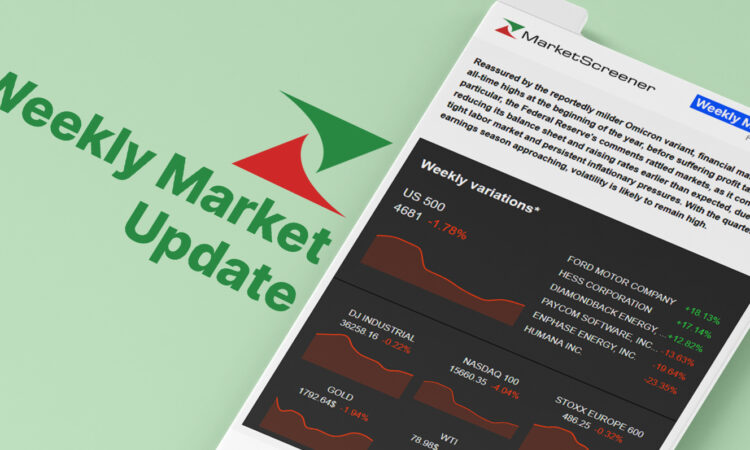
Currencies. The dollar had a brief return above 1.09 against the euro in the wake of the Fed’s policy decision to raise rates by a quarter point, as expected. But the strengthening of risk aversion, materialized by the fall of European banks at the end of the week, gave the greenback a boost, returning to USD 1.072 for EUR 1 on Friday. The same goes for the pound sterling, at USD 1.2196 per GBP. The yen, on the other hand, has been a safe haven with three consecutive sessions of strengthening, returning to the 130 JPY/USD mark. As for the EUR/CHF, it lost its gains from the beginning of the week to return to 0.9871, after the rescue of Credit Suisse and the SNB’s half-point rate hike.
Rates. As expected, the central banks continued their fight against inflation despite the pressure on the banking sector. The US central bank and the Bank of England raised their key rates by 25 basis points to 5% and 4.25% respectively. The US side remained firm on the future path of interest rates. Despite this, investors remain convinced that the Fed will have to quickly change its stance since the consensus is still for a rate cut this summer. Historically, every episode of monetary tightening has ended in a crisis: the Latin American debt explosion in 1982, the 1987 crash, the LTCM bankruptcy in 1998, the bursting of the internet bubble in 2000, the subprime crisis in 2007 and BKLN in 2018. It is only a (small) step to say that the SIVB bankruptcy marks the beginning of a systemic crisis. In the meantime, the yield on US 10-year debt is furiously testing its support at 3.35% with 2.73% in its sights while on the German side we will be watching the 2% threshold in parallel to confirm the drop to 1.50%.
Cryptocurrencies. After an explosive rise of more than 25% last week, bitcoin has been holding steady around $28,000 since Monday. The digital currency has benefited from a return of risk appetite on hopes of a slowdown in Fed rate hikes. Still being very sensitive to the macroeconomic environment, the asset’s advance appears to be dependent for the time being on an easing of monetary policy across the Atlantic, which will come to fruition as economic conditions improve. Although it has risen strongly amidst banking tensions, it is far too early to say that bitcoin is taking its place as a “safe haven” as some aficionados claim.
Agenda. Europe switches to daylight saving time this weekend, which will reset the traditional time difference with the US. The week’s major events are the Conference Board’s US Consumer Confidence Index (Tuesday), Germany’s preliminary March inflation figures and the latest estimate of Q4 GDP in the US (Thursday), followed on Friday by Eurozone inflation in March and so-called PCE inflation in the US. In addition, there are two speeches that could have an impact. US Treasury boss Janet Yellen’s speech on Thursday evening and ECB President Christine Lagarde’s speech on Friday.





